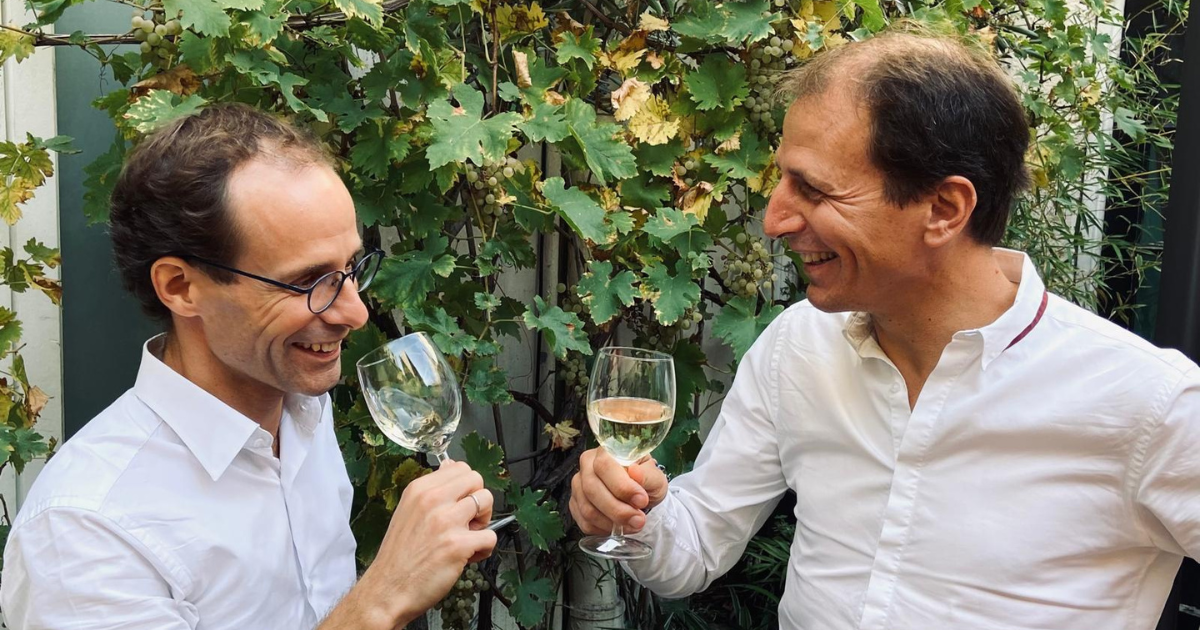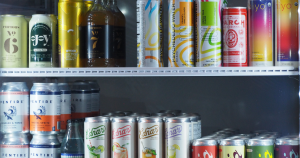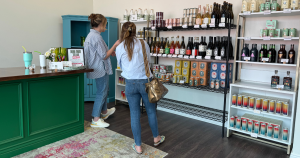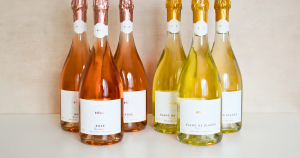Partner Content: moderato
In a country where wine is more than just a beverage—it’s a cultural cornerstone—launching a non-alcoholic wine brand in France is nothing short of revolutionary. Yet, that’s exactly what Sebastien Thomas and Fabien Marchand-Cassagne have set out to do with moderato. Driven by a deep love for traditional wine and a desire to innovate, these entrepreneurs are challenging the status quo of the French wine industry by introducing alternatives that don’t compromise on taste or quality. But what motivates this bold move, and how are they navigating the complexities of modernizing such a deeply-rooted tradition?
In this exclusive interview, Thomas and Marchand-Cassagne share the story behind moderato, discussing their passion for wine and the cutting-edge technology they use to preserve its essence without the alcohol. They also reveal how they’re winning over both skeptics and sommeliers, while expanding the accessibility of wine for those who wish to enjoy the experience without the effects of alcohol.
Dry Atlas: French culture and alcoholic wine seem to be inextricably linked. Here in the US, when we produce and promote non-alcoholic wine, it’s less disruptive. Given France’s deep ties to alcoholic wine, what inspired you to start moderato and focus on non-alcoholic variants?
Sebastien Thomas: We’re both wine lovers, actually. We reached a stage where we thought, “Well, we love wine, but alcohol sometimes is a bit too much.” We observed what had happened on the beer front where, four or five years ago, high quality non-alcoholic beers started to emerge. Then we thought, “Why not use our great savoir-faire, our know-how, that we have in France about wine and see what we could do in the non-alcoholic space?” We understood, because it had never been really done before, that this would be a challenge.
DA: So you’re coming from a love for traditional wine, not any kind of rejection of it. That makes sense upon further reflection. What you’re really doing is expanding the accessibility of wine for people who might be taking a break from drinking, or want to alternate glasses. How do you actually make your non-alcoholic wine?
ST: To date, the vacuum distillation we use is probably the best in terms of preserving the DNA of the wine itself. It works through a low temperature distillation process. So we remove the alcohol, but try to preserve—as much as we can—the structure and aromas of the original wine. We’ve been lucky enough to experiment with a number of different technologies, and this was the one that did the best job. There are still things we can improve, and we’re working on that, but this is truest to the original wine.
DA: To stay true to the original wine, how do you balance innovation with tradition?
Fabien Marchand-Cassagne: First of all, we do it with the French winemakers. We don’t do it against them. We are associated with the French Vivadour, a leading cooperative group in bulk wine production, in the southwest of France, and they help us to develop the best products possible. We also want to defend our savoir-faire, and we know the wine needs to be adapted to our new way of consumption and development as well. Non-alcoholic wine is a way to adapt this beautiful French pastime of wine to the way we’re living in this century.
ST: To make a good non-alcoholic wine, you need a very good and very well-balanced wine. That’s why the tradition, the know-how, is absolutely critical to us. We’re trying to stretch it and bring it into the 21st century.
DA: So you’re applying the same traditions but modernizing them. We’ve spoken to other European non-alcoholic wine producers who have faced resistance from the traditional industry. Is there anyone opposing what you’re doing?
ST: They always are. When you’re trying to talk about evolution, new ways of doing things, people always tense up. But that’s been evolving a lot in the past 18 to 24 months. People are starting to think differently and, yes, there is a crisis in the wine market globally. But I think it’s beyond that. They’re starting to understand that consumers want something different.
We’ve made some very good progress and we’re striving to produce the best quality possible. Wine has existed for thousands of years. Good quality non-alcoholic wine for just a handful of years. So there’s still a lot to learn, create, and develop.
FMC: The opposition came from those who will actually benefit most from this innovation: the people attached to the French wine tradition. They were shocked, because it’s just a different way of thinking. But they realized that it benefits winemakers, because it allows consumers to still drink wine in moments when they abandon alcoholic wine. We are not in competition with wine; we are a complement to wine.
ST: I keep this anecdote because I come from a cognac-making family: when they were shipping wine from the Charente region all the way to England and to the Nordic countries, it wasn’t traveling well. They thought, “Well, what can we do? How can we fortify the wine?” They started to distill it to increase the ABV level, and they realized that it actually created something nice and that the barrel-aging made it even nicer. So there is some serendipity as well. Today cognac is treasured, but the first guy to distill wine was probably called crazy.
DA: Let’s talk specifically about your wines now. I was impressed to see that your Cuvée Revolutionnaire was described as “baffling” by a top sommelier in France. Can you talk about the reception among wine experts?
FMC: It surprised us because we were not expecting that Marie [Wodecki, France’s champion Young Sommelier of 2023] would publicly—and without being sponsored—communicate that.
When we launched the Cuvée Revolutionnaire, we sent 20 bottles to the 20 best sommeliers in France asking for their expert opinions. We didn’t ask for any publication, any promotion. We just wanted to know what they thought of it.
We were not surprised by the reaction itself, because we are really proud of the progress that we made with this product. But we were surprised by the willingness she had to broadcast her feedback. She’s young, and a woman, and she’s probably more open than the most classic French 50- or 60-year-old male sommeliers. We’re not surprised by her comment, but surprised by her willingness to make it so publicly.
DA: That’s an interesting point about the next generation of sommeliers. If non-alc wines become more normalized, maybe in 10 years’ time, do you think that’s what the experts of the next generation will be thinking? Or is this a case of an especially open-minded somm?
ST: That’s the million dollar question. I think it’s a bit of both. The professionals who have acknowledged our Cuvée Revolutionnaire, there is an open-mindedness to them, a curiosity about it being dealcoholized. I think a lot of the new professionals will be more curious and more open to new thinking. It’s becoming less about knowing every wine from every region. Yes, there is foundational knowledge, but they’re more curiosity-driven and more open to sharing new things with others. And that’s a great evolution.
DA: What role do you think alcohol-free wines play in fine dining, and how do you think alcohol-free wines should be enjoyed in that context?
ST: What we are trying—and hopefully achieving—so far is to do exactly the same. The perfect serve is the same as a nice-quality (alcoholic) wine. If you want a white wine, you need to serve it chilled, same with sparkling. Reds should be room temperature or slightly lower. We’re striving for that quality and that complexity that matches great food.
We’ve just partnered with a French chef who has lived a number of years in the US. He created traditional cuisine that he had reinvented to match perfectly with our Cuvée Revolutionnaire, and that’s really part of the message: it’s no different. You can enjoy high quality non-alcoholic wine the way you enjoy a nice alcoholic wine.
DA: Turning to the innovation side of things: you have what we would call in English the “Sober Cellar.” What role does that innovation center play in your company’s future? Do you see yourselves playing a broader role in the advancement of alcohol-free wine production?
ST: Definitely. This partnership stems from our desire to bring forward the know-how and the innovation as well. So the Chai Sobre, the Sober Cellar, will be a top-class dealcoholization center for moderato and it will be open to other brands as well. We want to experiment and further improve non-alcoholic wine quality.
Nothing like it exists in France at the moment. When you want to dealcoholize in France, you have to go abroad. We thought it made sense to create that structure, to bring that facility here, and to keep raising the bar in terms of quality.
FMC: We did it for two reasons. First, we want to continue developing the best alcohol-free wine in the world. For that, we need to research all production elements, so we need a laboratory and a place to conduct tests. Second, if we want to develop this new category, we need to have more people try the product. We want to have as many winemakers as possible do their alcohol-free wines.
DA: A collaborative approach that echoes what you shared about working with the traditional wine industry. Now that you’re coming to the US, what do you think about this market versus France in terms of non-alcoholic wine reception?
FMC: I see two major differences between the French and the US markets. First, France is by far the most conservative food and drink market in the world. American people in general are more open to innovation and to new trends in general.
Second, France is completely focused on the taste in food and drinks. The US is also focused on taste, but also on the functionality of the food and the drinks. Non-alcoholic wine has a functionality because it’s alcohol free, but also because it’s 1/7 of the calories of an alcoholic wine.
We have a large wine market, but penetration with alcohol-free wine in France is probably the biggest challenge that exists. If we can continue to succeed as we are currently, I think we could interest a lot of American people.
DA: Looking ahead for moderato, what are you most excited about? Are there any big projects or product launches in the pipeline?
ST: We want to keep pushing the barriers in terms of quality and the types of product we bring to the market. We want to show that it’s possible to expand the know-how and to help the market grow.
FMC: Here’s one special piece of info for Dry Atlas readers: we have just been selected to get listed in the number one wine importer in the world, SAQ (Société des Alcools du Québec). They have decided to launch non-alcoholic products for the first time, and they selected four moderato products to do that. They tasted dozens and dozens of different alcohol-free products, and they selected four of ours. So we are very proud and very excited by this launch. That could be one of the major launches we have, and Quebec is not far away from North East America, so I hope that it will give good ideas for other retailers in the US.






